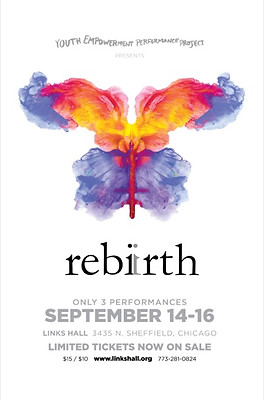
YOUTH
EMPOWERMENT
PERFORMANCE
PROJECT
Healing Performance Program
This is the original and core program of YEPP. Over a course of 9 months, LGBTQI+ youth (ages 18-25) move through a creative process of healing, self-discovery, and life building that results in a self-developed theatrical production. Throughout the process, members are provided with resource support, such as transportation and bi-weekly stipends. This program closes with community performances of the production and possible opportunities to travel regionally and nationally while creating awareness about issues surrounding LGBTQI+ youth homelessness and its intersections.
TIMEFRAME EACH YEAR
This program starts each year in September with final performances taking place in May of the following year. Due to the intimacy of the program spots are limited. Young people interested in participating must navigate an application and interview process in order to be considered.
MEMBER APPLICATION PROCESS
Eligible participants will be asked to complete and submit an application demonstrating their interest in and commitment to YEPP’s Healing Performance Program. Applicants are expected to demonstrate readiness and commitment in order to participate in this program. Applications open in July with individual interviews held in August each year. If you are a young person interested in participating or a youth worker that would like to refer a young person, you can either Sign up for our Monthly Newsletter to learn when applications get open or email us at info@WeSayYEPP.com to ask for more information.
Past Productions:

Forging From Fire
(Debuted on March, 2017)
Forging From Fire tells of the various journeys that individual ensemble members have taken to build lasting relationships and how circumstances, behaviors and choices can create compromising situations. Through diligent deconstruction and self-discovery, each member worked through a heated process to understand ways to develop meaningful and healthy relationships afterwards to mold and refine a new space of love - for one’s self and for others.
Some of the life-topics they addressed included physical, verbal and sexual violence, DCFS and the foster care system, incarceration (within the trans and gender non-conforming community), domestic violence, self-harm, mental health, and suicide.
Making It Home
(Debuted on January, 2016)
Making It Home is the journey of the ensemble members searching for their inner home. As part of this self search journey, the ensemble members went trough a process of creating awareness about different social-systemic issues that have been impacting the lesbian, gay, bisexual, transgender and queer (LGBTQ) community, communities of color, youth community, among other community intersections. They also explored where they are placed within these systems as part of the process to understand their history and themselves. Some of the topics addressed were: the murder of trans individuals in the U.S. and beyond, the high rates of incarceration within people of color, people of color been murdered by the criminal justice system, the lack of resources, historical trauma, cultural appropriation and lack of cultural understanding, homelessness, institutional harm, among others.


Faces
(Debuted on June, 2014)
This performance looked at the different faces that society and systems have defined for the ensemble members vs. the different faces they strive to build and present for themselves. The ensemble members brought the audience through a journey of self-deconstruction that finished up in a re-construction of new and self-empowered identities.
Rebirth
(Debuted on September, 2012)
In Rebirth, the youth ensemble focused its healing process in rediscovering themselves based on their journey in The Other Side of Hurt. They focused on their spirituality and existence in this world.
Some of the life-topics they addressed included physical, verbal and sexual violence, drug use, trans physical and emotional transition process, incarceration (within the trans and gender non-conforming community), self-harm, mental health, and suicide.


The Other Side of Hurt
(Debuted on August, 2011)
The Other Side of Hurt was the inaugural journey of the ensemble members in exploring the first time they were hurt in their lives and how, from this specific experience, they kept moving far away from their individual self and power. During the development process, they gave to themselves the opportunity to re-write and heal that experience and to build a more empowered self.
Some of the life-topics they addressed in this piece included physical, verbal and sexual violence, spiritual struggles, incarceration (within the trans and gender non-conforming community), domestic violence, self-harm, mental health, and suicide.